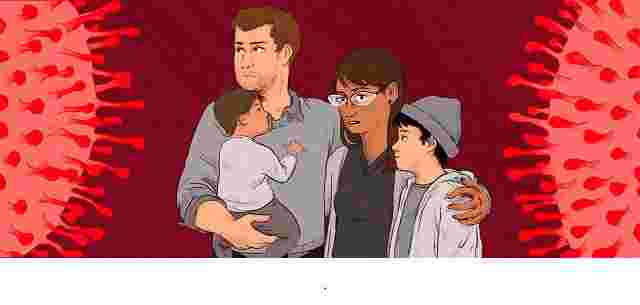Coronavirus: A Challenge and Lesson for Families
30 Mar 2020 by Karen Kaye LMHC and Hara Wachholder LMHC in Ego, Fitness, Fitness, General, Health, Health, Home

As families struggle with the severe lifestyle restrictions brought on by the coronavirus, many parents are seeking guidance and direction for their children. How much should we tell them? How do we allay their fears? What are some recommended indoor activities for parents and children?
South Florida-based family therapists Karen Kaye and Hara Wachholder, a mom-daughter team, have some specific guidelines for getting through this unprecedented disruption in family life. Check our article below.
It is terrifying when you do not have all the answers, especially when you are a parent and your children are looking to you for safety. We are living in a very chaotic time due to the fear of the unknown while a feeling of powerlessness and despair creeps over us. Some of us have many questions while others are not sure what to ask or what to do during this difficult time. The issue is that human beings seek comfort and once they receive that comfort, they either experience life lessons, are destined to repeat patterns until they learn from the lesson, or never understand the lesson at all.
While in crisis mode, we have the opportunity to recognize how to make improvements in our lives, but once the crisis is over, we often return to our typical behaviors such as disconnecting from face-to-face communication and quality time to focusing on technology and “socializing” online with strangers. As we are currently being asked to avoid unnecessary trips outside, the universe is asking us to go inward and identify areas in need of our attention that we have been neglecting. Now comes the test of our inner abilities of adapting and handling change as well as dealing with being out of control and powerless. We are going back to an era where family is a necessity for survival. Some families will break down further, while other families will rise to the occasion and hopefully work through their differences by focusing on what is most important to them.
 Bear in mind that panicking is not equivalent to being prepared. Fear can result in illness. We highly recommend that you utilize this time wisely. First, it is imperative to do what we call a “self-check-in,” to identify personal concerns and worries in order to avoid instilling those fears in your children and others. Once identifying your personal concerns, fears, thoughts, and feelings, we recommend that each household establishes routine family meetings with age-appropriate information. Prior to providing information to your children, we recommend asking them what they have already heard, what they are thinking and feeling, and whether they have any questions they would like to ask prior to adding more to their plate.
Bear in mind that panicking is not equivalent to being prepared. Fear can result in illness. We highly recommend that you utilize this time wisely. First, it is imperative to do what we call a “self-check-in,” to identify personal concerns and worries in order to avoid instilling those fears in your children and others. Once identifying your personal concerns, fears, thoughts, and feelings, we recommend that each household establishes routine family meetings with age-appropriate information. Prior to providing information to your children, we recommend asking them what they have already heard, what they are thinking and feeling, and whether they have any questions they would like to ask prior to adding more to their plate.
From there, you can provide a general overview of the situation such as stating, “There is an illness going around. Many will recover as there are many helpful nurses and doctors, but some will have it worse than others, so it is important to be careful not to spread germs.” An overview of proper handwashing would be beneficial as well as teaching ways to interact with others while promoting social distancing, i.e., staying six feet away from one another, waving hello rather than shaking hands, etc.
It is important for children to have guidance and the facts as well as a safe place to share their own concerns and fears. When researching answers to questions that you or your children may have, utilize credible sources such as the Centers for Disease Control and Prevention (CDC) as well as additional .gov and .org sources. Be mindful of overexposure for children, as the media can sensationalize these situations. Keep in mind that even adults can be overexposed to the chaos, so take breaks from the news for your own well-being. Some healthy ideas for taking breaks would involve quality family time such as: playing board games, building an indoor fort, reading, doing a puzzle together, cooking a meal, exercising, going for a walk, drawing or painting, etc. Children can also be encouraged to identify creative and healthy activities that they would like to do on their own as well as with their siblings, parents, and additional family members.
Should you want to process your concerns and fears with a professional, we highly recommend that you reach out to local therapists and mental health/family therapy centers in your area, as many have established telehealth sessions to accommodate the needs of the public. If you are located in the State of Florida you can schedule a phone session with Karen Kaye.
Karen Kaye, LMHC and Hara Wachholder, LMHC are coauthors of My Parents Are Getting a Divorce . . . I Wonder What Will Happen to Me, an interactive discussion book that helps provide a bridge of understanding between parents and their children based on the personal and professional experience from the authors. For urther information, please visit www.imstillmebook.com.











